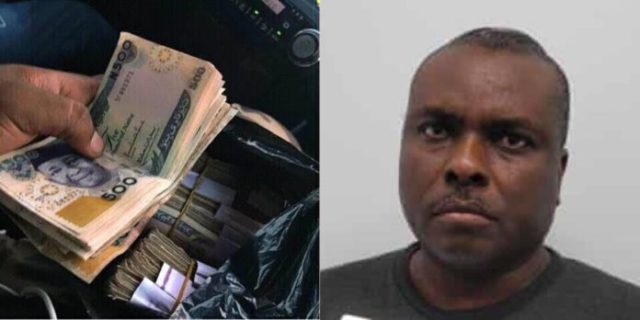The Nigerian Midstream and Downstream Petroleum Regulatory Authority (NMDPRA) has confirmed that contaminated petrol was imported into the country by the Nigerian National Petroleum Company Limited.
Oil marketers estimated that about 100 million litres of contaminated petrol were imported into Nigeria and had been recalled by the Pipelines Product Marketing Company, a subsidiary of the NNPC.
In a statement issued yesterday, NMDPRA said petrol, with methanol quantities above Nigeria’s specification, was discovered in the supply chain.
“Methanol is a regular additive in petrol and is usually blended in an acceptable quantity,” it stated.
The regulator added that the limited quantity of the impacted product had been isolated and withdrawn from the market, including the loaded trucks in transit to ensure vehicular and equipment safety.
“To ensure vehicular and equipment safety, the limited quantity of the impacted product has been isolated and withdrawn from the market, including the loaded trucks in transit
“Our technical team in conjunction with the NNPC Limited and other industry stakeholders, will continue to monitor and ensure quality petroleum products are adequately supplied and distributed nationwide.
“The source supplier has been identified and further commercial and appropriate actions shall be taken by the authority and the NNPC Limited.
“The NNPC Limited and all oil marketing companies have been directed to sustain sufficient distribution of petrol in all retail outlets nationwide.
“Meanwhile, NNPC has intensified efforts at increasing the supply of Petrol into the market in order to bridge any unforeseen supply gap,” said NMDPRA.
The recall caused long queues in Abuja, Lagos, Niger, Nasarawa and many other states, as the few petrol outlets that dispensed products were crowded by motorists and other persons using generators to power their businesses and houses.
Many filling stations were shutdown on Tuesday for lack of products to sell thereby increasing the cost of transportation in places like Lagos, Abuja, Ibadan, Ogun State, among others.
It also resulted in the resurgence of black marketers on major roads in major cities, selling petrol to interested consumers at cut-throat prices.
The few filling stations that had petrol in Lagos, for instance, increased the pump price from N162/5 per litre to as much as N300.
The development caused long queues across Lagos and Abuja as many filling stations shut down services. In a now-viral video online, a petrol attendant in Lagos complained how adulterated petrol supplied to the station damaged motorists’ cars and motorcycle engines.
Meanwhile, some petroleum marketers said fuel scarcity will persist in Lagos and other parts of the country until depots are restocked with adequate and quality products.
The marketers, who spoke to NAN on the condition of anonymity, blamed the current scarcity on the supply of a wrong specification of petrol in some parts of the country.
They noted that the directive to withdraw the product from the market even after distribution to many filling stations across Lagos and other areas created a supply shortfall, thereby leading to panic buying.
“As we speak, the Nigerian National Petroleum Company Ltd is working to ensure that this disruption to the supply chain is addressed as soon as possible. However, there is the challenge of logistics and how to compensate those who were supplied with the adulterated products.
“The NNPC is working with marketers on this and once the depots are restocked, tankers will start loading and supply will improve across the country.
“Until we are able to achieve this, queues will remain at the petrol stations because of the panic already created.”
An independent petroleum marketer (name withheld) said there had been complaints from some motorists on the fuel quality which made his station to stop selling for now.
“Some independent marketers are not hoarding products as is being alleged. Some of us were affected by the supply we got and we are trying to resolve the situation so that we can continue our business,” he said.
A NAN correspondent check at Ikeja, Iyana-Ipaja and Abule-Egba areas of Lagos State revealed that only a few filling stations were selling fuel.
Others, especially those owned by independent marketers, were not opened for business.
However, it was observed that the filling stations were selling at between N162.50 and N165 per litre, which indicated that the scarcity had not led to an increment in pump price.


























































